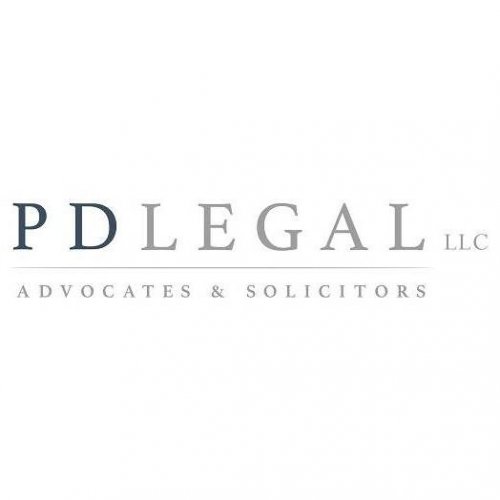Best Energy, Environment & ESG Lawyers in City Hall
Share your needs with us, get contacted by law firms.
Free. Takes 2 min.
List of the best lawyers in City Hall, Singapore
About Energy, Environment & ESG Law in City Hall, Singapore
Energy, Environment, and ESG (Environmental, Social, and Governance) law in City Hall, Singapore involves the regulation and management of resources, environmental protection, and the implementation of sustainable business practices. Situated in the heart of Singapore’s civic district, City Hall is a hub for government agencies, businesses, and non-profit organizations, making it a focal point for sustainability initiatives and regulatory compliance. In Singapore, there is a strong commitment to green urban development, clean energy transitions, and responsible corporate governance in line with both national policy and global standards.
Why You May Need a Lawyer
Legal advice in the field of Energy, Environment, and ESG can be crucial for a variety of reasons. You may need a lawyer if you are:
- Developing or investing in renewable energy projects and need to navigate local regulations - Facing investigations or enforcement action for alleged breaches of environmental regulations - Looking to implement or assess ESG strategies or disclosures in your organization - Dealing with land use issues, conservation areas, or protected sites within City Hall or surrounding areas - Seeking approvals or licenses for development projects with environmental impact - Pursuing or defending claims related to pollution, waste disposal, or hazardous substances - Participating in government tenders requiring ESG compliance - Needing support with sustainability reporting as required by authorities or shareholders
The complexity and evolving nature of energy, environment, and ESG regulations in Singapore mean that professional legal guidance can help you ensure compliance, avoid penalties, and achieve your business or personal objectives efficiently.
Local Laws Overview
City Hall, as part of Singapore’s central area, is governed by both national and local statutes related to energy, environment, and ESG matters. Some key legal frameworks and considerations include:
- Environmental Protection and Management Act - Governs pollution control, environmental standards for businesses, waste management, and hazardous substances. - Energy Conservation Act - Requires large energy users, including those in City Hall, to meet energy efficiency obligations and mandatory reporting. - Resource Sustainability Act - Emphasizes waste reduction, recycling requirements, and management of e-waste. - Green Mark Scheme - A statutory requirement for major developments, incentivizing sustainable building designs and energy efficiency. - ESG Reporting and Governance - Listed companies must comply with ESG reporting requirements, including those set out by the Singapore Exchange (SGX) and related authorities. - Planning Act - Restricts land use and ensures environmental considerations in urban planning.
Local authorities frequently update these regulations to keep pace with international trends and national policy goals. Non-compliance can lead to significant financial penalties, operational restrictions, or reputational damage.
Frequently Asked Questions
What is ESG, and why is it important for businesses in City Hall, Singapore?
ESG stands for Environmental, Social, and Governance. It is a set of standards used to measure an organization’s impact on the environment, contributions to society, and internal governance practices. It is important in City Hall due to strict regulatory requirements and growing demand from investors and consumers for sustainable and responsible business practices.
Are there specific laws regulating renewable energy in City Hall, Singapore?
While there is no City Hall-specific law, national laws such as the Energy Market Authority guidelines and the Energy Conservation Act regulate renewable energy projects and incentivize their adoption in commercial and residential developments within the area.
How are environmental violations dealt with in City Hall?
Violations are investigated by agencies like the National Environment Agency (NEA). Penalties may include fines, corrective orders, and in some cases, criminal prosecution depending on the seriousness of the offense.
Do small businesses within City Hall need to comply with ESG regulations?
While ESG reporting is mandatory for Singapore Exchange-listed companies, small businesses are encouraged to adopt good ESG practices. Some environmental and energy regulations apply regardless of company size, especially concerning pollution and waste management.
What is the process for obtaining an environmental permit or license in City Hall?
You typically need to submit an application to the relevant agency, such as the NEA, with details of your operations, waste management plan, and environmental impact assessments. Consultation with a lawyer can help ensure the process is smooth and compliant.
Is there government support for ESG initiatives in City Hall?
Yes, various government grants and initiatives support ESG adoption, such as Enterprise Singapore’s sustainability grants and the Building and Construction Authority’s Green Mark Incentive Scheme.
What are the penalties for breaching environmental laws in Singapore?
Penalties can include hefty fines, cessation orders, jail sentences for severe offenses, and even suspension or revocation of business licenses for repeat offenders.
Can individuals take action against companies for environmental impacts?
Yes, individuals or groups can lodge complaints with regulatory authorities or, in some cases, initiate civil action for damages related to pollution or other environmental harm.
What reporting obligations apply to businesses operating in City Hall, Singapore?
Businesses, especially those listed on the SGX, are required to provide annual sustainability reports. They must also comply with any industry-specific reporting duties related to emissions, energy consumption, or waste generation.
How can a lawyer help with sustainability-linked business projects?
A lawyer can assist with regulatory compliance, drafting and reviewing contracts, securing permits, managing liabilities, and ensuring that all legal and reporting obligations are met for sustainability-driven projects.
Additional Resources
If you need further information or support on Energy, Environment, and ESG matters in City Hall, Singapore, consider consulting the following organizations and authorities:
- National Environment Agency (NEA) - Oversees pollution control and environmental health programs - Energy Market Authority (EMA) - Regulates energy sector and promotes clean energy use - Building and Construction Authority (BCA) - Focuses on sustainability in the built environment - Singapore Exchange (SGX) - ESG reporting guidance for listed entities - Enterprise Singapore - Offers grants and support for businesses adopting ESG practices - Singapore Environment Council - Provides public education and certification for environmental initiatives
Next Steps
If you believe you require legal advice or representation in matters related to Energy, Environment, or ESG in City Hall, Singapore, consider the following steps:
1. Identify your issue and gather relevant documents or information related to your situation. 2. Research local law firms or legal professionals with expertise in Energy, Environment, and ESG law. 3. Schedule a consultation to understand your rights and obligations under Singapore law. 4. Prepare specific questions about compliance, permits, disputes, or reporting before meeting your lawyer. 5. Follow your lawyer’s advice to ensure your business or project aligns with legal requirements and best practices.
Being proactive in seeking legal guidance can help you avoid costly mistakes, ensure regulatory compliance, and contribute positively to Singapore’s sustainability goals.
Lawzana helps you find the best lawyers and law firms in City Hall through a curated and pre-screened list of qualified legal professionals. Our platform offers rankings and detailed profiles of attorneys and law firms, allowing you to compare based on practice areas, including Energy, Environment & ESG, experience, and client feedback.
Each profile includes a description of the firm's areas of practice, client reviews, team members and partners, year of establishment, spoken languages, office locations, contact information, social media presence, and any published articles or resources. Most firms on our platform speak English and are experienced in both local and international legal matters.
Get a quote from top-rated law firms in City Hall, Singapore — quickly, securely, and without unnecessary hassle.
Disclaimer:
The information provided on this page is for general informational purposes only and does not constitute legal advice. While we strive to ensure the accuracy and relevance of the content, legal information may change over time, and interpretations of the law can vary. You should always consult with a qualified legal professional for advice specific to your situation.
We disclaim all liability for actions taken or not taken based on the content of this page. If you believe any information is incorrect or outdated, please contact us, and we will review and update it where appropriate.
Browse energy, environment & esg law firms by service in City Hall, Singapore
City Hall, Singapore Attorneys in related practice areas.










